Bad sleep is linked to pretty much every single illness and disease there is.
Yet while traveling the world and sleeping on many different beds for over a year — and years of testing and tweaking — I’ve found the best strategies to get great sleep.
As a fitness expert, I emphasize sleep as one of the easiest and most powerful things you can do to improve your overall health and well-being (as well as your mood, energy, and mental performance).
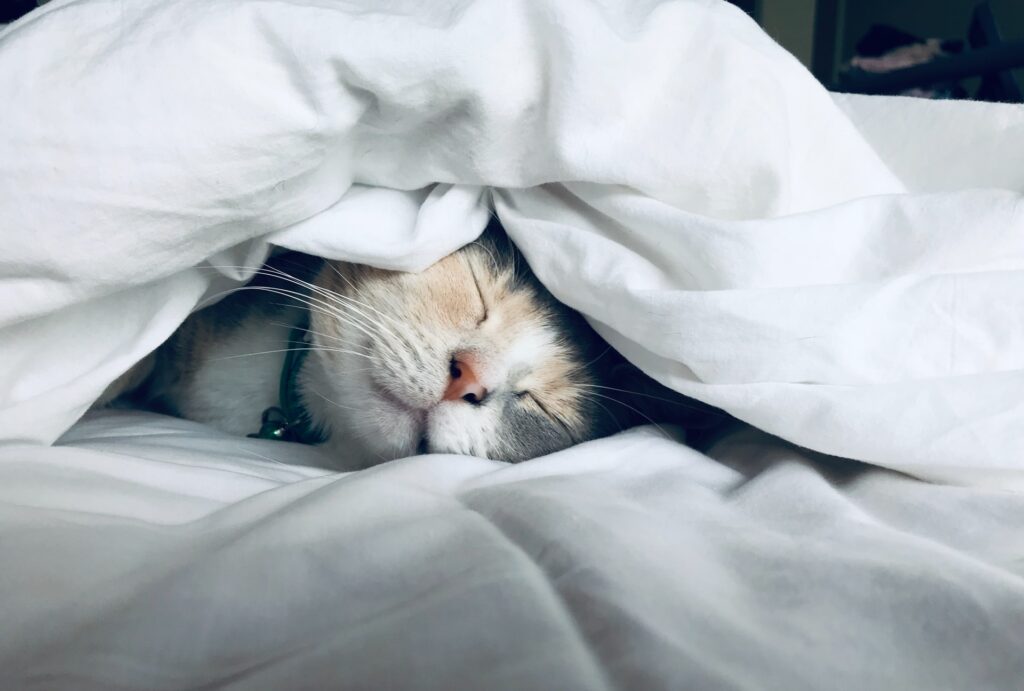
Whether you use all these tactics or just one or two, you’ll see an immediate improvement in both your sleep quantity AND quality. So let’s get right to it:
1. The #1 worst and most common sleep killer (and how to fix it)
The biggest sleep problem is simple and all-too-common:
Using electronics just before going to bed.
Many people surf the web, check social media, or watch television; turn it off; jump right into bed (or maybe they’re already in bed); and try to go to sleep.
But here are the problems:
- The bright blue light from screens stimulate your brain and mimic daylight, affecting your circadian rhythm (the body’s natural rhythm for sleeping at night) and making it harder to get deep, restful sleep
- It’s distracting and fills your mind with all kinds of thoughts
- Seeing certain things can actually stress you and make it harder to sleep
- It doesn’t give you a chance to TRULY wind down after a long day
Instead, limit your use of electronics within one hour of going to bed.
Stop watching television and stop using your computer, tablet, or phone.
If you really need to use them before bed, I highly recommend investing in an app that reduces the amount of blue light from your screen at night.
I’ve been using f.lux for years and I swear by them.

Bonus tip: Set up your phone to help!
Often, people’s phones are a distraction machine—with all kinds of alerts and notifications, it’s like they have a newborn baby in their pocket.
Here’s how I trick my phone for better sleep:
- It has a blue light blocker (or nighttime mode) activated at night
- It has a timed Do Not Disturb mode that kicks in an hour and a half before bedtime so I stop receiving notifications.
- I put my phone on airplane mode while I sleep.
- I have NO distracting apps, games, etc. that would encourage me to use it
2. A great sleep strategy from pro athletes
Have a hard time switching off mentally after a stressful day before going to bed?
Take a lesson from elite athletes!
Before shooting high-pressure free throws, making the last putt in a golf tournament, or kicking a game-winning field goal, athletes always have a routine. Why?
Not because the routine is “special:” It’s because it helps them “get in the zone” so that they can feel ready to repeatedly do something well.

To boost your sleep, try creating a nighttime routine.
Create a routine of specific activities to physically and mentally relax you, help you wind down, and signal to yourself that it’s time to sleep.
Ideas include:
- Turning off your electronics (in Tip #1)
- Meditating
- Writing in a gratitude journal (a great way to review the day and find positivity even if you had a lot of stress)
- Reading a relaxing book (not a book that will make you think and get your mind turning before bed)
- Doing some breathing exercises
- Taking a relaxing bath or shower
- Lighting some scented candles
3. Tweak your lights to fall asleep faster
In 1910, the average person slept nine hours each night.
Today, the average person sleeps less than seven.
One reason for that massive drop? We have much more light and electricity at night.
Unfortunately, too much light before bedtime actually blocks the amount of melatonin (a sleep-promoting hormone) your body releases, which interferes with sleep.
That’s why, in the hour before bed, I’ll actually turn off most lights and create a dim, warmly lit setting in my home.
The idea is to reduce the amount of light you see before bed so those sleep hormones get released and you can fall asleep faster.
If you want, you can buy lightbulbs that have warmer, softer colors.
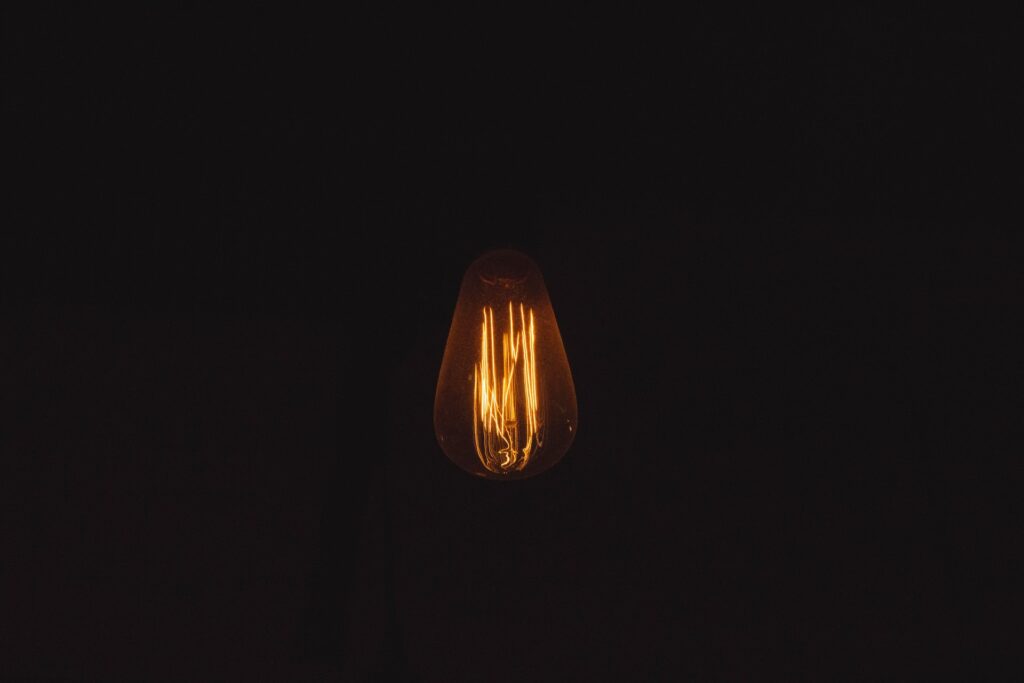
(If I’m at an Airbnb that has super bright lights, I’ll leave on a light in a different room and let that illuminate the room I’m in.)
4. Sleep better by setting an alarm
Tons of people use an alarm to wake up, but not as many use an alarm to go to bed.
Set an alarm to kick off your nighttime routine—that way, your routine is repeatable.
Every night, at a certain time, my phone alarm rings signaling, “It’s time to turn everything off and start winding down.”
(Just for fun, my actual alarm is “All Night Long” by Lionel Richie.)
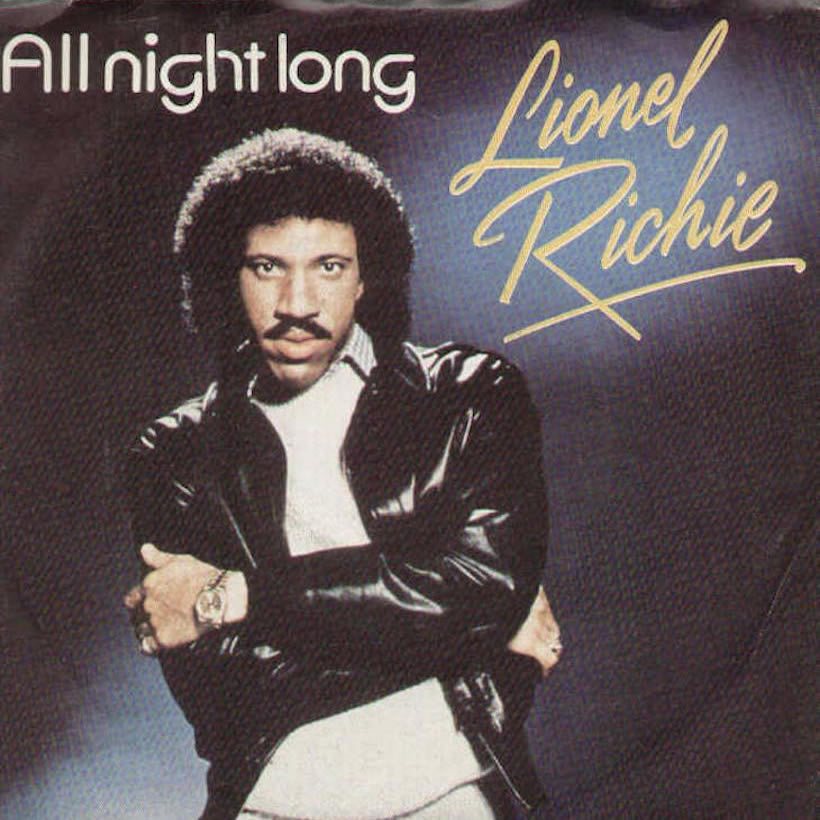
That way, rather than constantly having to check the clock and seeing if it’s finally your bedtime, you can just outsource this responsibility to an alarm.
5. How to sleep with a clear mind
Ever lay down and have a million thoughts running through your head?
Maybe you’re thinking about some work projects, studying for a foreign language exam, or thinking about a conversation you had.
Or as you lay down, you suddenly remember something important to do tomorrow?
DO NOT LET THOSE THOUGHTS STAY IN YOUR MIND.
Here’s what to do:
Leave a notepad on your bedside table so you can jot down any to-do’s, stresses, worries, or random thoughts — the ones that conveniently pop up once you lay down — so you don’t have to let it sit in your brain and occupy space.
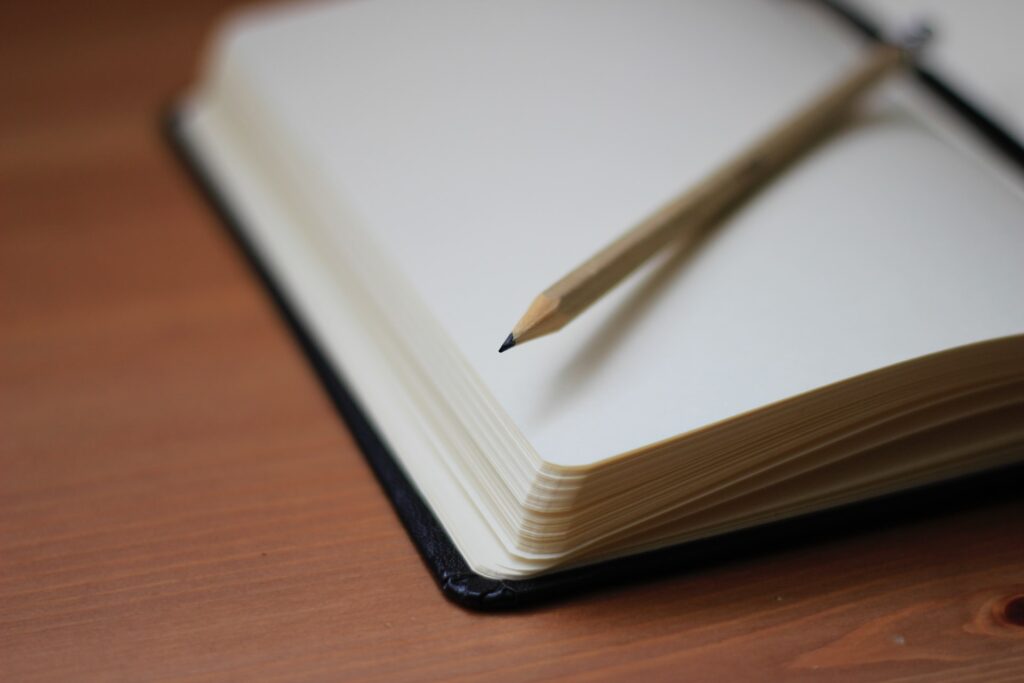
It might take three extra minutes, but your sleep will be infinitely better. (And you’ll actually remember them when you wake up.)
This is one of the easiest tricks to go to bed and not feel like you’re thinking about all the problems of the day.
6. The BEST purchase for DEEPER sleep
I cannot stress this enough:
If you want to improve your sleep, make your bedroom dark.
Ideally, sleep in complete darkness. (So dark you can’t see your hands in front of you.)
For this reason, invest in 100% blackout shades.
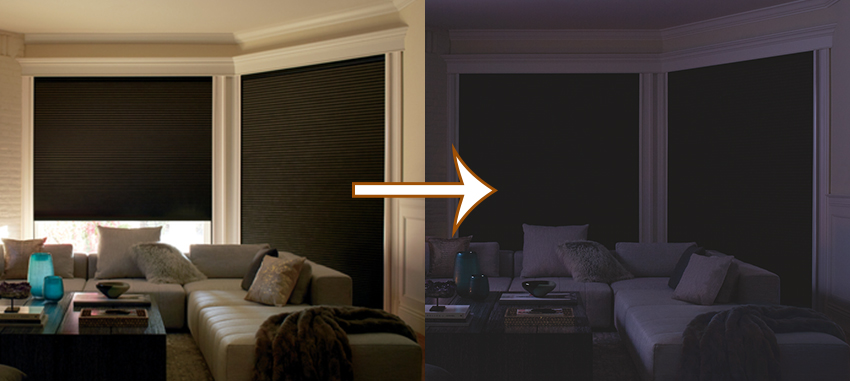
After staying in over 40 different Airbnb’s, before I choose a new one, I specifically ask if they have blackout shades.
I had to learn this the hard way because, when I stayed in a beautiful flat in Berlin, THERE WERE NO BLINDS ON THE WINDOWS!
Compare this to when I was in Split, Croatia, and the unique window shutters made the bedroom pitch black.
I slept for 10.5 hours one night.
I had no idea I was that tired, but it wasn’t until I had total darkness that I finally gave my body permission to sleep that long. (It felt amazing by the way!)
If your bedroom doesn’t have them or the windows won’t allow you to install them, invest in a good sleep mask, something larger to prevent light from seeping in around the edges.
7. Your bedtime isn’t as important as THIS “-time”
If you’re trying to change your sleep schedule, it’s far more important to fix when you wake up than when you go to sleep.
Ideally, wake up at the same time every day.
That way, your body starts building the circadian rhythm and you will naturally start to wake up at that time, even without an alarm.
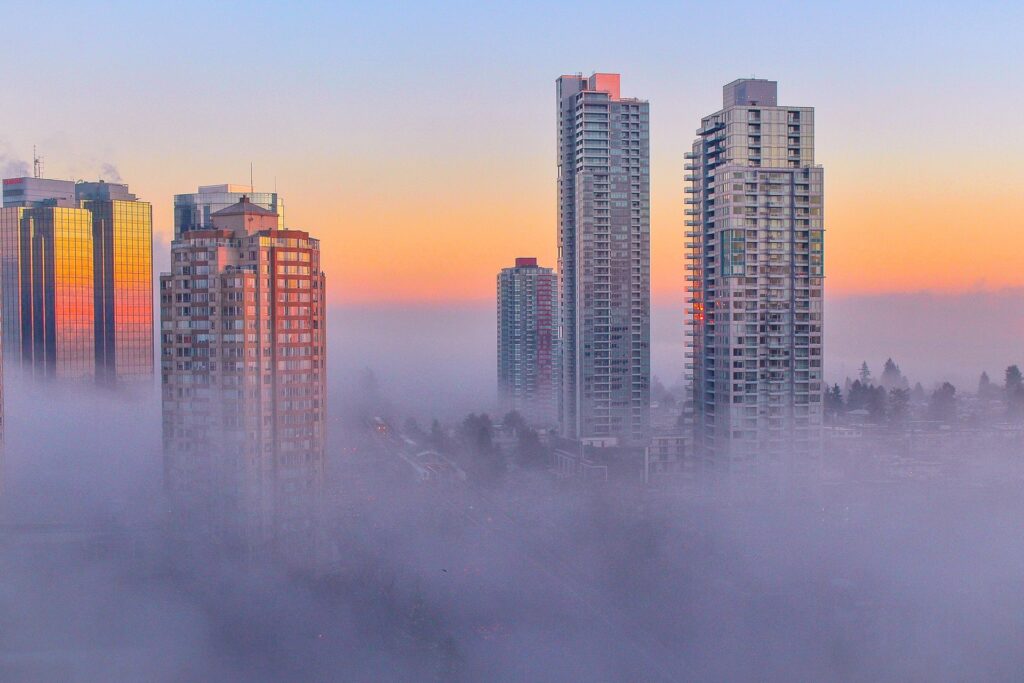
Now, if get up early during the week, I completely understand wanting to catch up on sleep during the weekends.
But to “catch up on sleep,” I recommend going to bed earlier rather than “sleeping in” and waking up later.
(“Sleeping in” tends to throw off your sleep schedule and make it harder to fall asleep at your normal weekday time.)
This same tip works when you’re traveling:
Whenever I change a lot of time zones, I always try to stay up until 8 – 9 hours before my normal wake time.
I might feel like a zombie for the first 24 – 48 hours, but my sleep schedule will adapt faster than if I catered to my fatigue and “slept in.”
8. How to create the PERFECT environment for sleep
How your room is structured can really affect your sleep.
Is there a lot of clutter? Are there clothes all over the place? Are there boxes, papers, and random stuff cluttered around? All of that is a bad signal.
Make your bedroom your sleep sanctuary.
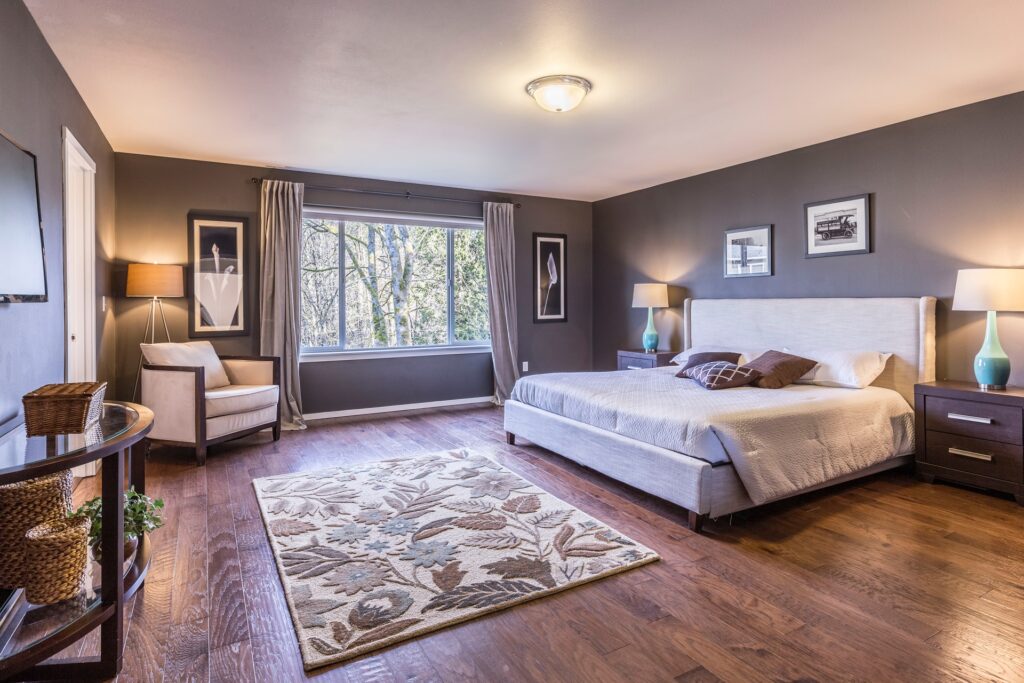
No TV. No cell phone. No distractions.
Don’t eat on your bed. Don’t write on your bed. Don’t work on your bed.
Even if you live in a studio and there are no walls separating the different areas of your house, try to make your bedroom area a safe haven.
If you can, keep your bedroom a little colder.
Whether it’s running your air conditioning, having a well-placed fan, or just keeping the shades down in your bedroom, try to keep it cooler than the rest your home. (Ideally, when you get in your bed, your sheets are a little cold.)
Also, keep your bedroom very quiet.
If you live in a busy, noisy city like I do, invest in foam earplugs.
9. Limit the sleep killers you put in your body
Lots of foods and drinks hurt your sleep.
Whether it’s coffee, alcohol, energy drinks, refined sugar, or certain foods, all of that stuff stays in your body and bloodstream for hours and can devastate your sleep quality.
Even if someone thinks, “Oh, I’ve been doing it for years and I’m just fine,” if they cut it out for a month and then re-introduce it, they WILL see (and feel) the difference.
Here are some tips:
- For my fellow coffee and tea drinkers, switch to decaf after noon.
- Avoid refined sugar, especially later in the day and at night.
- Avoid alcohol (i.e. a “nightcap”) before going to bed.
- Take a food intolerance journal and analyze how foods affects your sleep.

Believe it or not, certain foods make me feel wired before bed and leave me tossing and turning, having bad dreams, or using the bathroom throughout the night.
For certain people, they might be intolerant to particular spices, meats, sauces, vegetables, fruits, carbs, etc.
If you have a bad night of sleep, keep track of what you ate that day; after a few weeks of doing this, you might notice some surprising patterns.
Eliminating those culprits can revolutionize your sleep quality for the rest of your life.
10. How to fall back to sleep in the middle of the night
Sometimes you do everything right, yet wake up in the middle of the night and struggle to fall back asleep.
Here’s what I do:
First, relax. Sometimes I might get anxious or upset that I’m losing precious sleep time, which makes it harder to fall asleep.
Instead, I just remind myself to relax, melt into my bed, and see what happens.
Second, I never check the time. It won’t help me to know the difference between struggling to fall asleep at 1 AM versus 2 AM.
Third, if I can’t fall back asleep, I’ll get out of bed, turn on a very dim and warm light, and read a book for a little bit.
(Full disclosure: one of my favorite choices is Calvin and Hobbes because it’s funny, easy to read, and helps me not think about sleep.)
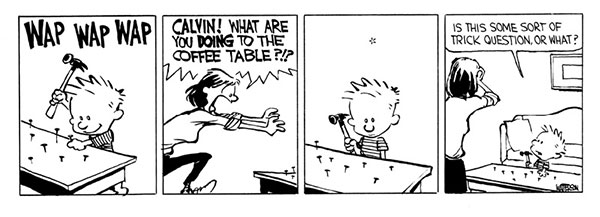
After a couple of pages — and a few laughs — I’ll go back to bed and usually fall back asleep.
But here’s an important reminder:
Even if I lose an hour of sleep in the middle of the night, I’ll still wake up at the same time. (I won’t try to “sleep in” to make the difference.)
Again, waking up at the same time is extremely important because you want to prep for the next night too.
11. My thoughts on sleep supplements
This step is last for a reason.
You should only use sleep supplements AFTER you do all the other steps. Why?
Because all the other steps are far more important, potent, and natural.
There’s no point in taking sleep supplements if someone plays with their cell phone in bed before sleep, drinks two cans of Coke during dinner, and has translucent window blinds.
But if you already have good sleep hygiene, taking the right supplement can help.
In this case, I take 3 mg of melatonin before bed.
It definitely makes a difference and makes me feel a lot more sleepy, which helps when I’m traveling long distances and overcoming jet lag.
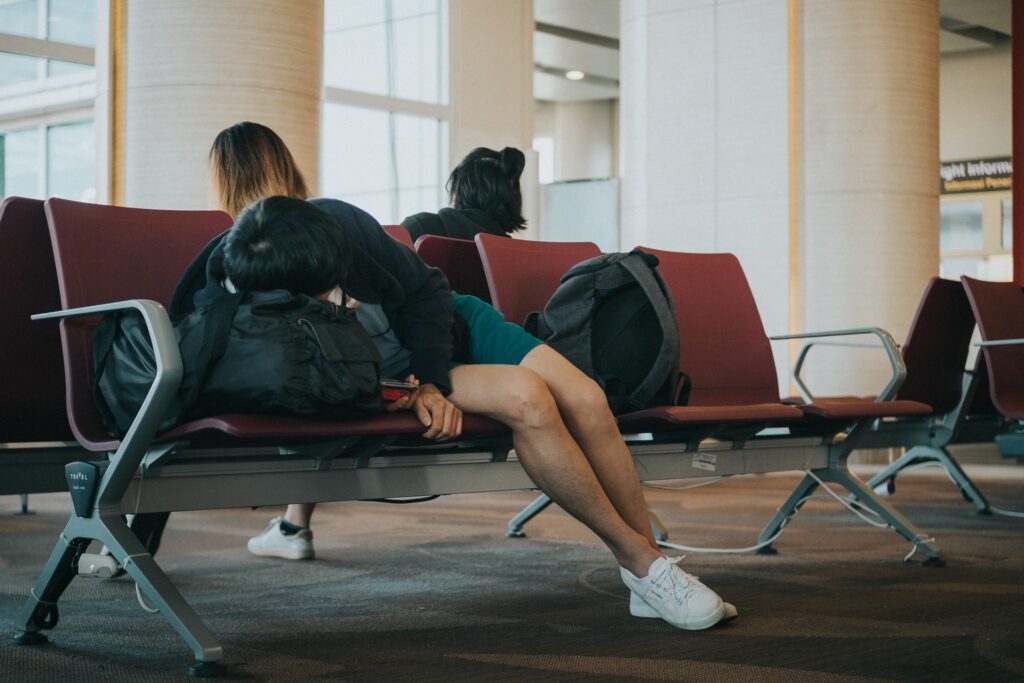
I also notice when I take zinc, which can be found in many multivitamins, I have deeper sleep and more vivid dreams. I find magnesium helps me a little bit too.
There’s other stuff like GABA, lavender, etc. — I’ve tried them, but honestly, I didn’t like them. (If anything, I slept worse.)
But try for yourself and see what works.
For the best science-based information on sleep supplements, what works, and what doesn’t, read this guide from Examine.com.
Putting it all together
Other people will tell you to “count backwards from 1000” or use some sort of trick when you’re laying in bed to fall asleep.
But all of these tips address everything that happens before you even go to bed.
Because that’s the most important thing.
Understand that sleep is impacted by all kinds of things throughout your day and in your environment.
If you address the biggest factors, by the time you lay in bed, you’ll fall asleep without even thinking about it — and reap all the benefits that come from better sleep.
[…] would they? They never had a fit body. They never trained people. They never slept 9 – 10 hours a night to get important recovery and spent an hour a day just taking care of their body. They never spent tens of thousands of […]